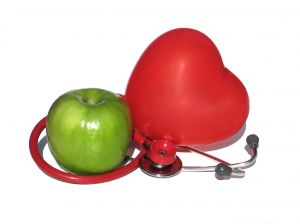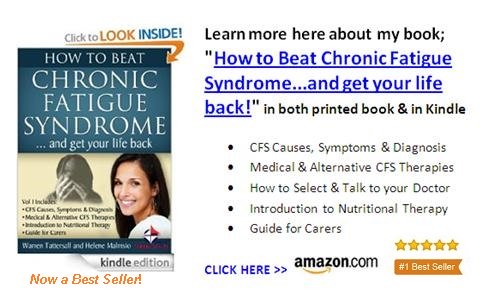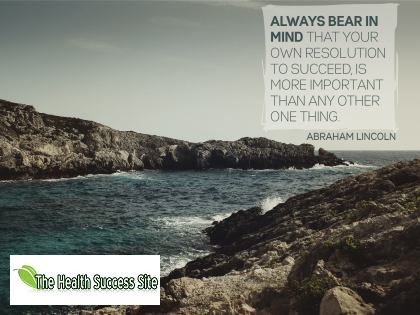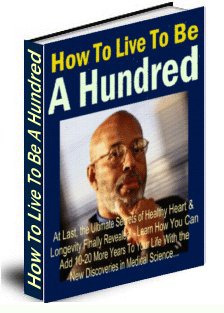| Back to Back Issues Page |
 |
|
Are You Putting Your Heart Health at Risk? - Your Health Success ezine March 06, 2018 |
I hope you enjoy the e-zine as much as I do writing it. Index: Optimum Health Tip: Quote of the Day: Health Report: Are You Putting Your Heart Health at Risk? Recommendations & Sponsors Warren’s Notes Have a Laff! Inspirational Meme: Your ebook download "How to Live to 100" Thank you to my readers who refer other people to my ezine. If they want to subscribe for the next edition, they can just visit the website and subscribe here: SUBSCRIBE to eZine If you ever decide that you want to unsubscribe, you will find the link to do so at the bottom of this page. (But we will really miss you!) Optimum Health Tip:Bone HealthCalcium-rich non-dairy foods: Kale, okra, kidney beans, green beans, nuts, sardines, apricots, figs and tofu. Do you get enough calcium? Experts recommend 1000 mg daily for adult women to age 50 and adult men to age 70. Women over 50 and men over 70 should get 1200 mg per day. Weight bearing exercises are important for bone health. Incorporate them into your routine a few times per week. What are weight bearing exercises anyway? Some examples include walking, jogging, tennis, aerobics and more. Common factors affecting your bone health: calcium in your diet, exercise, smoking, alcohol consumption and health. Eat well, exercise and take care of your body. Calcium isn’t enough. Your body needs Vitamin D to absorb calcium, so make sure you’re getting enough. Motivating Quotes:"You will do foolish things, but do them with enthusiasm." - Colette "And the trouble is, if you don't risk anything, you risk even more." - Erica Jong "I'm not afraid of death, I just don't want to be around when it happens." - Woody Allen" REPORT: "Are You Putting Your Heart Health at Risk?"
Heart disease and other cardiac problems can be devastating for anyone who experiences them. They can be terrifying because they’re potentially fatal. But many types of heart disease don’t have to be a death sentence. The heart is one of the most critical organs in your body. If your heart stops working, you will die without medical intervention. You can’t live without the heart because it pumps blood through your body, sending it to your brain and other parts of the body that require it. Without your heart, your other organs can’t get any oxygen. Your brain can only live for a few minutes without it. If your brain is too seriously damaged, there’s nothing doctors can do to bring you back. Because the heart is so important, it’s absolutely vital that you take care of it properly. You should do everything you can to protect it. Heart Health Statistics You Need to Know You probably realize how important your heart is. But you may think heart health tips don’t apply to you. Let’s look at a few statistics that might help you realize just how important this is to you: • Heart disease is the biggest single cause of death of men AND women in the United States. • More than 869,000 people died of heart disease in the U.S. in the year 2004. More women than men are affected by heart disease. • Heart disease is the biggest cause of death for many races of people, including Caucasians, Hispanics, Alaska Natives, African Americans, and American Indians. For Asians and Pacific Islanders, the leading cause of death is cancer - but heart disease isn’t far behind. • African Americans have an average of 30% higher rates of heart disease than Caucasians. • The leading type of heart disease is coronary heart disease. Almost 500,000 people died from coronary heart disease in 2004. • About 47% of deaths due to heart related illnesses happen before the patient receives medical care from EMTs or hospital staff. • More than 7,000,000 people are killed by coronary heart disease each year worldwide. • Over one third of adults report having two or more of the six common risk factors for heart disease and stroke. Those are diabetes, smoking, physical inactivity, obesity, high cholesterol, and high blood pressure. • 30.2% of people 20 and older have hypertension or are taking hypertension meds. • 17.3% of people 20 and older have high cholesterol. • 30.5% of people 20 and older are obese. • 6.5% of people 20 and older have diabetes. • 37.6% of people 18 and older get no physical activity during their leisure time. • 21.6% of people 18 and older are smokers. • Around 40,000 babies are born in the U.S. each year with congenital heart defects. • Over half of deaths from congenital heart defects are in people under age 15. • 36% of young athletes who experience sudden death die from hypertrophic cardiomyopathy. • Over 30% of high school student report being smokers. • Over 15,000,000 children under age 18 experience second hand smoke at home. • Females age 4-19 have higher mean cholesterol and LDL cholesterol than males. • Over half of high school students are enrolled in physical education classes, but less than one third attend those classes daily. • 12% of Caucasian boys and 11.6% of Caucasian girls age 6-11 are overweight. • 17.1% of African American boys and 22.2% of African American girls are 6-11 are overweight. • 27.3% of Hispanic boys and 19.6% of Hispanic boys age 6-11 are overweight. • The statistics of overweight children are even higher in those age 12-19. With statistics like these, it’s more critical than ever to start your children off with the right habits for heart health as early as possible. More and more children and young adults are dying from heart related issues each year. And those statistics increase as those children age. You should make sure your children get enough exercise, eat a healthy diet that’s rich in fruits, vegetables, and whole grains, and don’t allow them to eat too much sugar or refined carbs. Risk Factors for Heart Disease There are a lot of risk factors for heart disease, but there are six major risk factors that everyone should pay attention to. These are the most common risk factors, accounting for the vast majority of heart disease. These six risk factors are diabetes, smoking, physical inactivity, obesity, high cholesterol, and high blood pressure. Diabetes Diabetes is a major risk factor for heart disease. For a long time, the medical community has known that high blood sugar can have a detrimental effect on the heart. Patients with diabetes have double to as much as quadruple the risk of dying of heart attack or stroke that someone who has already had a previous heart attack but doesn’t have diabetes. A recent study in the New England Journal of Medicine found evidence that lowering your blood sugar significantly can reduce the risk of heart attack and stroke by nearly half! This is most prominent in those with Type 1 diabetes, but there’s an ongoing trial about whether or not controlling blood sugar levels could also halve the risk in patients with Type 2 diabetes. About 95% of the 20,000,000 Americans with diabetes have Type 2. Unfortunately, a lot of people who have Type 2 diabetes don’t even realize it until it’s too late and the damage has already been done. Patients with heart disease might not even have their blood sugar levels checked, and people with diabetes may not routinely have their heart checked. Smoking It’s been known for many years that smoking increases your risk of all types of diseases. It’s a major cause of atherosclerosis, which is when fatty substances build up in the arteries. In patients with coronary artery disease, the arteries become narrowed, which decreases the supply of blood to the heart. This can lead to angina, and may even eventually lead to heart attack. Peripheral artery disease is when there is atherosclerosis in the arteries that take blood to the extremities. This may cause intermittent claudication, which is a painful cramping in the legs when the patient is walking. It can also increase the risk of stroke. Smokers are also at a much higher risk of heart attack than non-smokers. The longer a person smokes, the more that risk increases. People who smoke just one pack of cigarettes per day have more than two times the risk of heart attack than non-smokers. Physical Inactivity The heart is a muscle. When muscles aren’t used much, they tend to atrophy. That means they shrink and aren’t as strong as they could be. The heart can experience a similar effect. When people don’t get a lot of exercise, their heart can stop working as well. Regular physical activity, especially aerobic exercise, can help prevent cardiovascular disease, heart disease, and stroke. Lack of physical activity is strongly linked to cardiovascular mortality. Physical activity can also control blood cholesterol, diabetes, blood pressure, and it can help prevent and correct obesity.
Recommendations & Sponsors:Our Sponsors and Affiliates are what keep this newsletter and our website self help books, articles and resources free to you, so we appreciate your support when purchasing from our sponsors.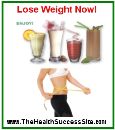 I'd love to help you with your optimal health and weight goals! Learn more here (<= tap or click image button)about the products that I've been taking myself for over 25 years, and that have helped millions of people. I'd love to help you with your optimal health and weight goals! Learn more here (<= tap or click image button)about the products that I've been taking myself for over 25 years, and that have helped millions of people. Products can be ordered online and delivered to your door almost anywhere in the world. Open the page with password: WT (in capitals) One of the most powerful products I can recommend to my clients is the Thermojetics Beverage. It speeds up your metabolism and boosts your energy to burn more fat faster. Delicious range of flavours, mix instant crystals with hot water or juice, enjoy in dozens of different ways throughout your day. Just ask me for more info about Thermo or check out the page linked to below.  Open the page with password: WT (in capitals) I'm proud to announce that the first book in our series became a Bestseller on Amazon, ranking #1 in the chronic fatigue syndrome category! Since then, I have published Volume 2 about our CFS Diet, to fully explain how your digestive system, using cellular nutrition and superfoods, along with herbal based nutrition, can help you to recover your energy and wellbeing too! 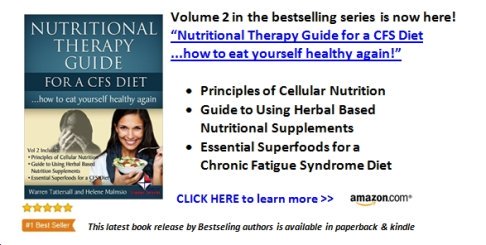
Being asked for a Password to view a site page? Not a problem! Just enter WT (in capitals)to open the page.
REPORT: "Are You Putting Your Heart Health at Risk?" continued:ObesityObesity is a major risk factor for many types of diseases. Coronary heart disease is one of these. There are several reasons why obesity can increase the risk of heart disease. For one thing, it can raise blood cholesterol and triglycerides. It lowers HDL cholesterol, and raises LDL. It causes hypertension. It can cause some people to develop diabetes, which can significantly increase the risk of heart attack. Even when there are no other known risk factors, obesity alone increase a person’s risk of developing heart disease. High Cholesterol High cholesterol is another major risk factor in coronary heart disease, which can lead to heart attack. Although cholesterol is necessary for many functions in the body, having too much of the wrong kind can lead to coronary disease. Low density lipoprotein is the major carrier of cholesterol in the blood. If there’s too much LDL in the blood, it can build up inside the arteries. This can lead to the formation of a hard deposit called plaque, and that can clog the arteries. If a blood clot forms near a plaque deposit, it can block the blood flow to the heart and cause a heart attack. If the clot dislodges and blocks blood flow to the brain, it causes a stroke. A level of LDL cholesterol over 160 mg/dL puts you at an increase risk of heart disease. If you already have heart disease, your cholesterol should be even lower in an attempt to prevent a heart attack or stroke. High Blood Pressure High blood pressure, also known as hypertension, usually has no symptoms. Many people have it for many years without even knowing it. Unfortunately, this can have devastating consequences for those who have it and don’t know. People who have prolonged and sustained hypertension can develop coronary heart disease, heart failure, stroke, kidney failure, and many other diseases. Nearly one third of American adults have high blood pressure. It’s very important to get your blood pressure checked regularly, even if you feel fine. Your blood pressure could start to rise at any time, so you should check it often. Family History Family history is a seventh risk factor that’s often overlooked - probably because nothing can really be done about it. People with a family history of heart disease or heart attacks are much more likely to get it themselves than someone without a family history, even if they have no other risk factors at all! So you should be sure to ask your family about the possibility that you have heart disease in your lineage. Find out what killed the last several generations of your family, and don’t forget about aunts, uncles, and cousins. Find out how old they were when they died, as well. The more you know about your family history, the more you can prepare for things that might happen to you later. Your doctor will want to know about your family’s heart health history as well. The Devastating Effects of Heart Attack Let’s say you ignore all of the advice, and you continue smoking, overeating, and not getting enough exercise. What could happen to you if you do have a heart attack? For one thing, many people just don’t survive a heart attack. Only people who get prompt medical attention have a good chance of surviving a heart attack, and a lot of people just don’t recognize the symptoms in time to get help. If you do survive a heart attack, your life will probably never be the same. You may feel very fatigued for quite awhile after your heart attack. It can cause damage to the heart that might make it hard for you to breathe or perform your normal daily activities well. If the heart attack is rather prolonged, it might even cause damage to the brain if it can’t get enough oxygen. Once someone has a heart attack, his or her chance of having another heart attack is increased significantly. The risk of death increases with each subsequent heart attack, because the heart is damaged further with each one. The best thing you can do is to prevent yourself from ever having a heart attack in the first place. Once you develop serious heart disease, it may be very difficult to prevent it from progressing. It’s much better to keep yourself from developing heart disease than to try to keep it from getting worse later. Surprising Facts about Children and Heart Attacks It was once thought that heart attacks generally only occurred in people over age 40, but we’re learning that isn’t always true. Recent news stories have revealed the prevalence of heart attacks in children as young as 12 years of age may be on the rise. Heart attacks in children are still extremely rare, but it can occur in children with problems such as Kawasaki’s disease, cardiac trauma, and congenital heart defects. It may also happen if there’s a viral infection in the heart, or if a tooth infection spreads. Fortunately, the risk of a child having a heart attack is still quite low unless a congenital abnormality exists. But with high cholesterol, diabetes, and high blood pressure on the rise in children, their risk of heart attack could be rising along with it. What You Should Be Doing Preventing heart attacks is definitely preferable to trying to treat heart disease that’s already developed. You should be doing everything you can to prevent yourself from developing cardiovascular disease in the first place. If you have existing issues such as family history, high blood pressure, or congenital heart defects, then you need to be especially concerned. It’s never too early to start caring for your heart, and to start your children on the road to long-term heart health. We hope you found this report helpful to you and that you will put the content to good use for improving your health and wellbeing. Learn more about improving your general health by getting better Nutrition for your Cells We also have a free report that you can download when you are there about this subject! We wish you well in your search for healthy diet solutions and your movement towards better health in all areas. Contact Us if you would like a free private consultation with us about your health online. To open page linked to below just enter WT in the password box on the page. 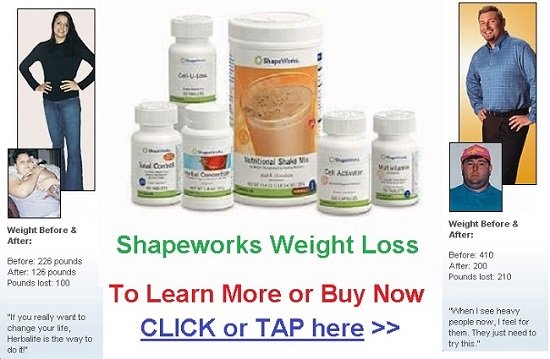
Warren’s Notes : Hi,
Hi, I hope your week has been kind to you. Mine has been a bit up and down. My mum is 89 years old now and has moved from her own home to a supported site. She loves it there and gets great care, has been eating a lot better, going well. That is until last week. She went outside with a friend to get some sunshine and, while moving from walking with her pusher to sitting, she took a fall. Snapped her Humorous, the big bone in her arm. The home called immediately and I was up there before the ambulance came. Lots of drama of course, lots of morphine, trip to regional hospital, which is an hour's drive away. She is doing fine now. Has been released to do her rehabilitation back at her home here in town. Much easier to visit her here but I will admit that this has taken priority and other things have been pushed aside a little during the last week. In fact I need to get up there now to meet with the physiotherapist so I will be brief. Best wishes for your coming week.
Warren
Remember, any time you want to learn more about anything in this ezine, or just need a chat about your health, drop me a line and I'll email back as soon as I can, and if you leave your phone number I'll even call you back on my dime! Have a Laff!Get Smart!A customer at Morris' Gourmet Grocery marveled at the proprietor's quick wit and intelligence. "Tell me, Morris, what makes you so smart?" "I wouldn't share my secret with just anyone," Morris replies, lowering his voice so the other shoppers won't hear, "But since you're a good and faithful customer, I'll let you in on it. Fish heads. You eat enough of them, you'll be positively brilliant." "You sell them here?" the customer asks. "Only $4 apiece," says Morris. The customer buys three. A week later, he's back in the store complaining that the fish heads were disgusting and he isn't any smarter. "You didn't eat enough, " says Morris. The customer goes home with 20 more fish heads. Two weeks later, he's back and this time he's really angry. "Hey, Morris," he says, "You're selling me fish heads for $4 apiece when I just found out I can buy the whole fish for $2. ...You're ripping me off!" "You see?" says Morris. "You're smarter already." Feel free to download and share the social media image below - ENJOY!
If you have any questions or would like to have direct contact to discuss anything related to this page, nutrition products or working with the nutrition industry then please send a note through the Contact Us form here on The Health Success Site And you can also learn more about me on my profile page here: Warren Tattersall ~*~*~*~*~
Thank you for joining us this week, I hope that you have found some extra motivation and inspiration to achieve lifetime optimal health! To update yourself on our new resources and lifetime optimal health strategies just go to
Your Health Online at The Health Success Site Your Editor,
Just mouse over the link below and click "right mouse button" and select "save target as" from the window that appears, to save this 200+ page book to your computer ENJOY!
~~~~~~~~~~~~~~~~~~~~~~~~~~~~~~~ DISCLAIMER: All information is intended for your general knowledge only and is not a substitute for your counselor’s advice or treatment. Use of these products and tips are at your own risk. We make no warranty, express or implied, regarding your individual results. ~~~~~~~~~~~~~~~~~~~~~~~~~~~~~~~ DISCLOSURE: I may be an affiliate for products that I recommend. If you purchase those items through my links I will earn a commission. You will not pay more when buying a product through my link. In fact, I oftentimes am able to negotiate a lower rate (or bonuses) not available elsewhere. Plus, when you order through my link, it helps me to continue to offer you lots of free stuff. :) Thank you, in advance for your support! No Liability This product is provided “as is” and without warranties. Use of this product indicates your acceptance of the "No Liability" policy. If you do not agree with our "No Liability" policy, then you are not permitted to use or distribute this product (if applicable.) Failure to read this notice in its entirety does not void your agreement to this policy should you decide to use this product. Applicable law may not allow the limitation or exclusion of liability or incidental or consequential damages, so the above limitation or exclusion may not apply to you. The liability for damages, regardless of the form of the action, shall not exceed the actual fee paid
for the product. Note: Articles in this ezine may concern health treatments and references to trademark brands. These articles are supplied for entertainment purposes only. Any claims that are made in your use of them and any consequences of your use of them are your own responsibility. You are advised to take legal advice in relation to setting up disclaimers and other aspects of your business. ~~~~~~~~~~~~~~~~~~~~~~~~~~~~~~~ Unsubscribe only if you want to stop receiving this ezine. Instructions are below. ~~~~~~~~~~~~~~~~~~~~~~~~~~~~~~~ |
| Back to Back Issues Page |

